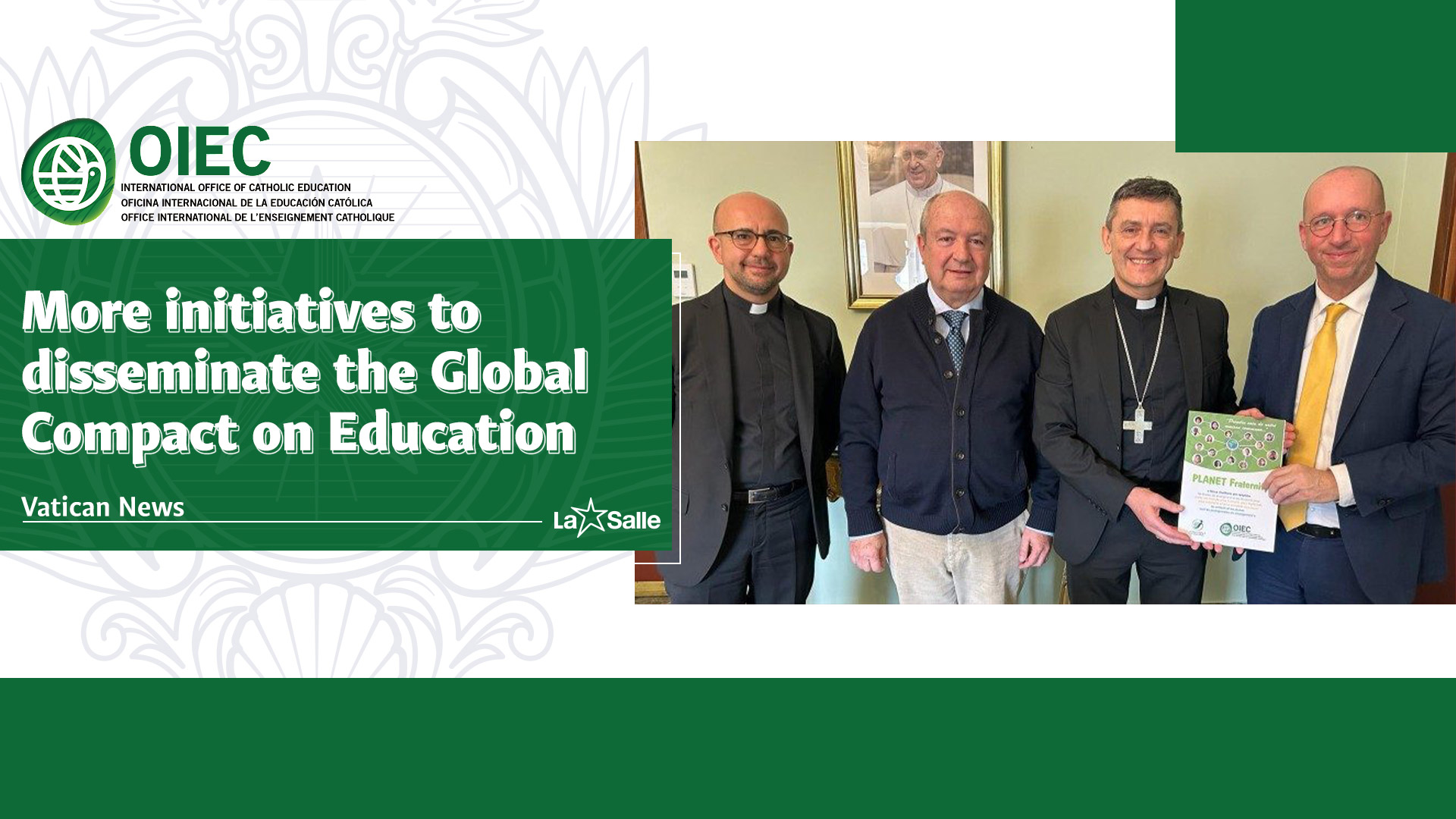Placing the human person at the centre, listening to the younger generations, caring for our common home: these are some of the points of the commitment to education that Pope Francis is asking us to make. There are still many challenges ahead, as the officials of the International Office of Catholic Education explain.
In 2019, Pope Francis launched the Global Compact on Education and renewed his invitation to “dialogue on how we are shaping the future of our planet and the need to employ the talents of all, since all change requires an educational process aimed at developing a new universal solidarity and a more welcoming society”. Five years on, the International Office of Catholic Education (OIEC) continues its commitment to the implementation of this document and works in synergy with the Dicastery for Culture and Education. To this end, Brother Juan Antonio Ojeda, Brother of the Christian Schools and OIEC project manager, together with Hervé Lecomte, Secretary General, met in Rome to coordinate the dissemination and construction of the Compact at the local level.
According to Brother Juan Antonio, the Compact is a big ‘umbrella’ that unites everyone and brings to life the magisterium of Pope Francis, especially through the inspiration of Evangelii gaudium, Laudato si’, Fratelli tutti and the ‘Economy of Francis’. “The seven objectives are not exclusive to Catholic schools, but also to non-Catholic schools,” says the Spanish Brother, who reiterates the importance of promoting a new personal and social reality that is more fraternal and supportive.
In order to achieve these objectives, the OIEC has prepared various information materials. One of the proposals is a series of vignettes, developed together with the caricaturist Fano, which will be published shortly and is intended to convey the Compact in a more attractive and stimulating manner. It is planned to be published in at least five languages: Spanish, English, French, Italian and Portuguese. In this initiative, Ojeda argues that all senses must be brought into play to help people touch reality and understand that the Compact changes their perspectives.
The Office also published the book ‘Construir el pacto educativo desde el territorio’ (Constructing the Compact on Education from the Territory), which recounts the implementation of the Pact in the department of Northern area of Santander, in Colombia. In the book’s preface, the former governor of the region, Mr Silvano Serrano Guerrero, writes that the Compact ‘is the symbol of a great social agreement around a public interest, such as education, that transcends the individual and builds new possibilities, based on the recognition of the collective genius that diversity brings. It is the confluence of diverse skills, knowledge and experience in the service of co-creating a better education for our people, especially our boys, girls, adolescents and youth’.
According to Brother Juan Antonio Ojeda, the Norte experience “will encourage Catholic schools to take the initiative to convene and promote this local and global alliance”. The work, structured in fifteen chapters, was presented to Pope Francis in December 2023.
In addition to Brother Juan Antonio Ojeda, OIEC Secretary General Hervé Lecomte, is very pleased with the meetings held with the Dicastery for Culture and Education and they are committed to strengthening the collaboration. “The Dicastery is very satisfied with the work we are doing. These are concrete projects. The Compact on Education is the most solid text of the Pontificate of Pope Francis and therefore we must write educational projects in every school based on the seven points. We should not imagine anything else. We should think, in each institution, about what can be done in this regard,’ he states.
*The OIEC (International Office of Catholic Education) has been granted international Catholic status by the Holy See and has consultative status at the United Nations (ECOSOC, Geneva and New York), UNESCO and the Council of Europe.



